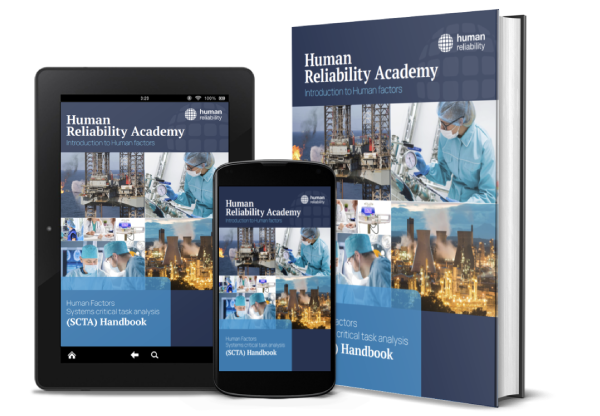An influential classification of the different types of information processing involved in industrial tasks was developed by J. Rasmussen of the Risø Laboratory in Denmark.
This scheme provides a useful framework for identifying the types of error likely to occur in different operational situations, or within different aspects of the same task where different types of information processing demands on the individual may occur.
The classification system, known as the Skill, Rule, Knowledge-based (SRK) approach is described in a number of publications, e.g. Rasmussen (1979, 1982, 1987), Reason (1990). An extensive discussion of Rasmussen’s influential work in this area is contained in Goodstein et al (1988) which also contains a
comprehensive bibliography.
Get the latest newsletter by signing-up today





This free 30 minute mini-course will introduce you to Human Factors, and how critical task reviews are used to improve the quality and safety of tasks and processes across different industries.
It’s free, informative and you’ll even get a certificate of completion.


This short and engaging handbook provides a great overview of Human Factors Systems Critical Task Analysis (SCTA) and how it helps people across sectors reduce error and improve human performance.
SCTA can help keep people safe and delivers value.


Popular Pages
© Human Reliability 2025.
1 School House, Higher Lane,
Dalton, Lancashire,
WN8 7RP, UK.
T: +44 (0) 1257 463 121
E: [email protected]